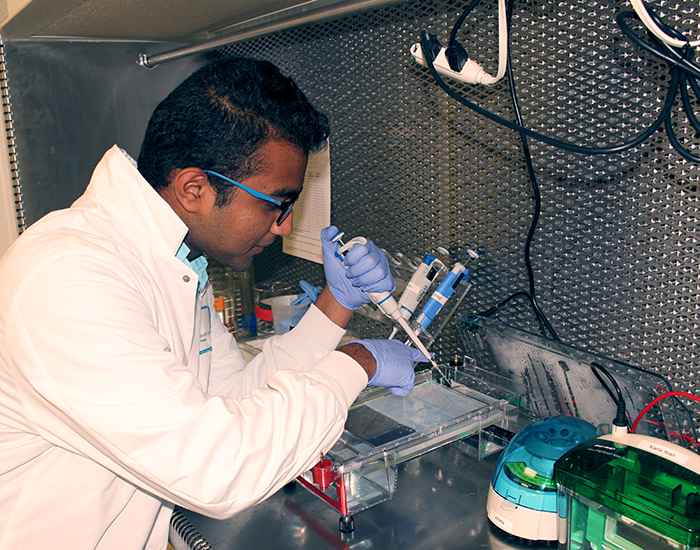This blog entry was written by Mitre Athaiya, a 2020 graduate from Claremont McKenna College. Athaiya is now pursuing a PhD in Neuroscience at the University of Michigan.
I arrived in the United States in the fall of 2016 as a freshman, eager to realize my version of the American Dream. Hailing from a humble background—my parents are government workers in India—I needed a set of skills that could help me stand apart in a crowd of thousands of international students. While pursuing those skills, I happened upon an advertisement posted by Kiana Aran. She was a new assistant professor at Keck Graduate Institute (KGI) and was looking for undergraduate research assistants for the summer and possibly longer.
Upon further research, I came to know about her work in graphene-based sensor development and her orientation towards therapeutics and diagnostics. Her work stood out the most compared to other labs I was applying to as it gave me the opportunity to develop skills in electronics, nano-diagnostics, and cutting-edge biological technology (Cas9 was the hot topic of the day).
I joined the Aran Lab in the spring of 2017. I was one of the first four members as well as the youngest, hence the least experienced. I had to face a steep learning curve because all I knew was biology and to think like a biology student which was not enough to carry out the assignments given to me. I had to quickly absorb many concepts from electronics, physics, chemistry, and biology in order to think in an interdisciplinary manner that was required to work in the lab. I was able to develop these skills over the course of my time at KGI, emerging as a well-rounded individual with a keen sense of and interest in conducting scientific research.
The Aran Lab provided me with the opportunity to travel to Spain in the summer of my sophomore year, and work under one of Kiana’s collaborators, Dr. Jacobo Paredes. The time I spent in Spain, learning more about graphene and the electronics side of the graphene project not only gave me new insights to the physics that goes behind nanotechnology, but also helped me grow personally. This trip became a catalyst in my own development. It marked my transition from just being an undergraduate assistant only capable of running assays to a researcher who had developed the capacity to systematically think and execute my ideas.
All the interdisciplinary thinking, insights as a researcher, and ability to execute great science that I learned during my time at the Aran Lab culminated into a great undergraduate thesis work I did in my senior year under Kiana and Alex. I was awarded honors in my major due to that thesis work and graduated cum laude.
During my trip to Spain, I happened to meet many University of Michigan undergraduate students and made many friends. I loved everything they told me about their university. As such, when I was applying to graduate schools, I applied to UMich. As fate would have it, I ended up getting accepted and am now preparing to pursue my PhD at UMich. After completing my PhD, I plan to work in a biotechnology firm to possibly develop diagnostic devices for neurodegenerative diseases.
I do not know what the future holds for me, but I do believe the lessons I learned at KGI and the Aran Lab will always guide me in the path I have chosen.
